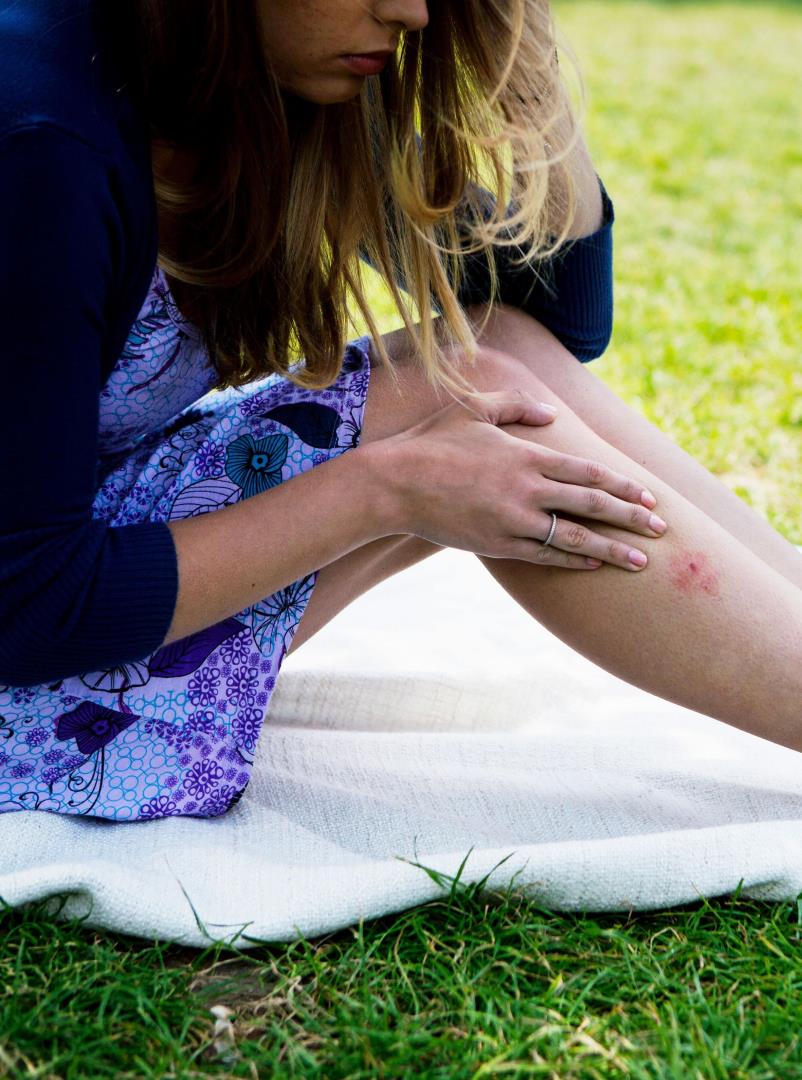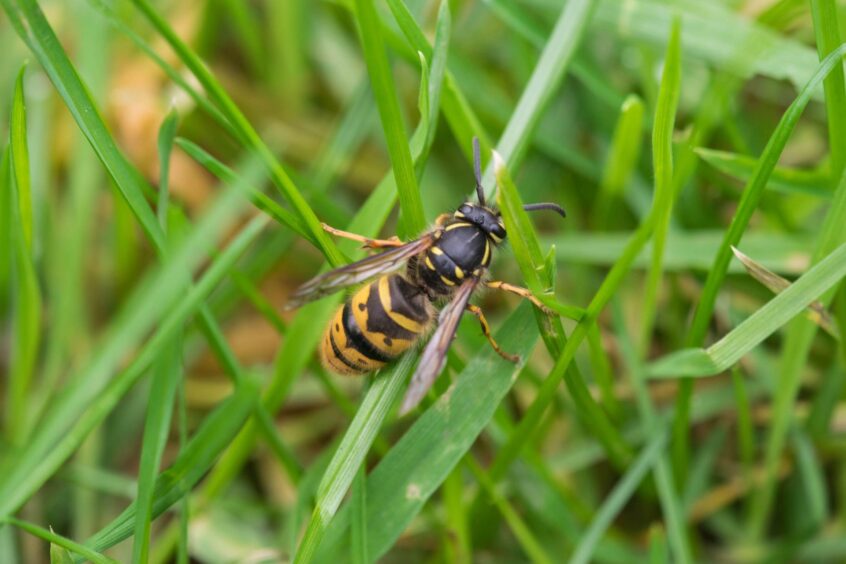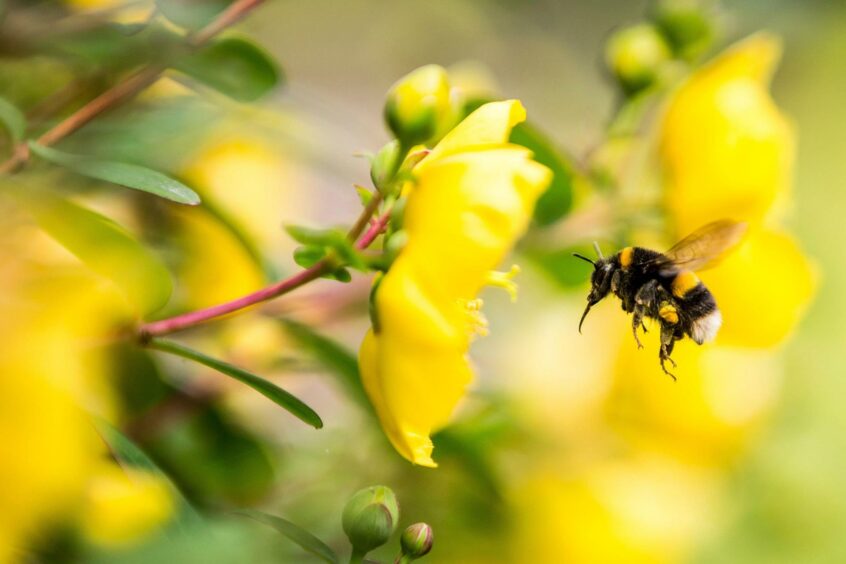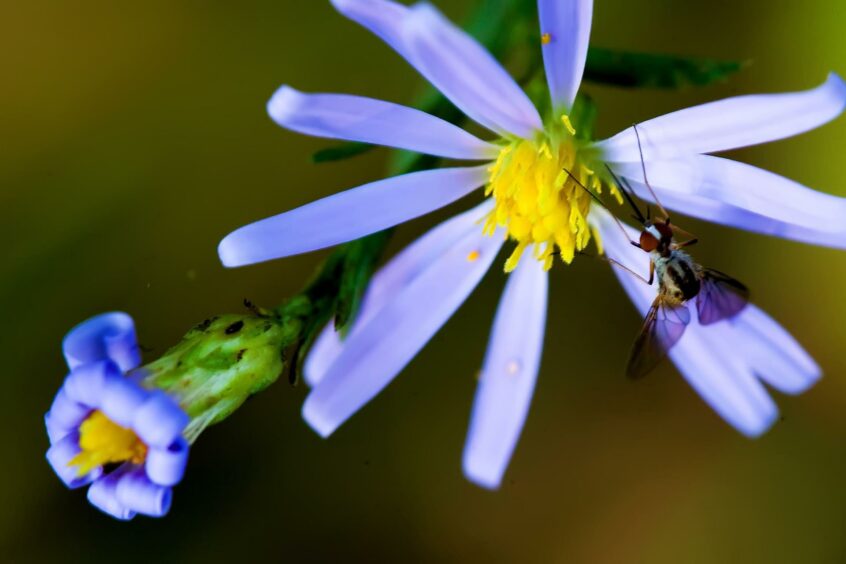Here comes the sun – and shorts, T-shirts, sandals, picnics, longer evenings and afternoons outdoors!
But this means insect bites and stings might be more likely too.
Thankfully on the east coast of Scotland, we’re not as likely to be pestered by midges as over in the west – but that doesn’t mean we don’t have to be careful of insect bites.
Our expert brings you top advice on how to best avoid and treat those pesky bites.
Besides being itchy and sore, bites and stings may take several days to disappear – and can become infected with bacteria – says Dr Deborah Lee from Dr Fox Online Pharmacy
Wasps
“If a wasp flies nearby or lands on you, don’t flap your hand. Just stay still and let it fly off. Wasps only usually sting if provoked,” Dr Lee continues.
She suggests wearing shoes when walking on grass. Wearing white or pale-yellow clothing has also been found to help keep wasps at bay.
“They have a very sweet tooth and highly sensitive sense of smell, so are instantly attracted to a picnic.
“Try filling a jam jar with jam, ginger syrup, or beer, plus add a little washing-up liquid, and place it a short distance away from your food,” adds Dr Lee.
And if you get stung: “If the sting is still in the skin, remove it gently with your fingernail or using a piece of gauze. Don’t use tweezers as you can squeeze more venom into the skin.
“You may want to take paracetamol or ibuprofen if it’s painful. If it’s itchy, try some antihistamines.”
Bees
“Bees are gentle and will only sting if frightened, so when one comes near you, keep calm and still,” says Dr Lee. “Although it can be hard to avoid the impulse, avoid swatting it. It’s likely to simply fly away.
“If bees appear, don’t jump up and run away in a panic. Get up slowly and move cautiously in the opposite direction. Bees don’t like panic.”
If stung, follow the same advice as a wasp sting.
Mosquitos
You can wear scented bracelets to try to keep pesky mozzies away, but you might be surprised to hear the colour of your clothes makes a difference to the likelihood of being bitten.
“Go for light coloured clothing, or beige or khaki. Don’t wear black leggings as they will bite through thin fabric,” says Dr Lee. “They can even bite through jeans!”
She advises applying insect repellent containing DEET before you leave the house, remembering exposed areas such as neck, fingers, ankles and wrists.
“Mosquitos love stagnant water, so don’t go near ponds. They’re attracted by some smells, such as lavender, so again, avoid any perfumed body products,” she continues.
“However, they dislike the smell of lemons. Citronella candles are ineffective because although mosquitos don’t like the lemons, they’re attracted by the increase in carbon dioxide from burning the candle.”
If you get stung, she advises: “Wash the area with soap and water, pat dry with a towel, use calamine lotion to relieve itching and apply a cold compress for five to 10 minutes.
Horseflies
“Horseflies are most likely to be out and about at dawn and dusk, although they can bite at any time,” says Dr Lee. “They love manure, so avoid stables and farmyards.”
Take care walking in long grass or beside stagnant water such as ponds, lakes and marshes. And wear long-sleeved tops and trousers, tucked into your socks.
They dislike the scent of peppermint, eucalyptus, lavender, clove, rosemary and basil.
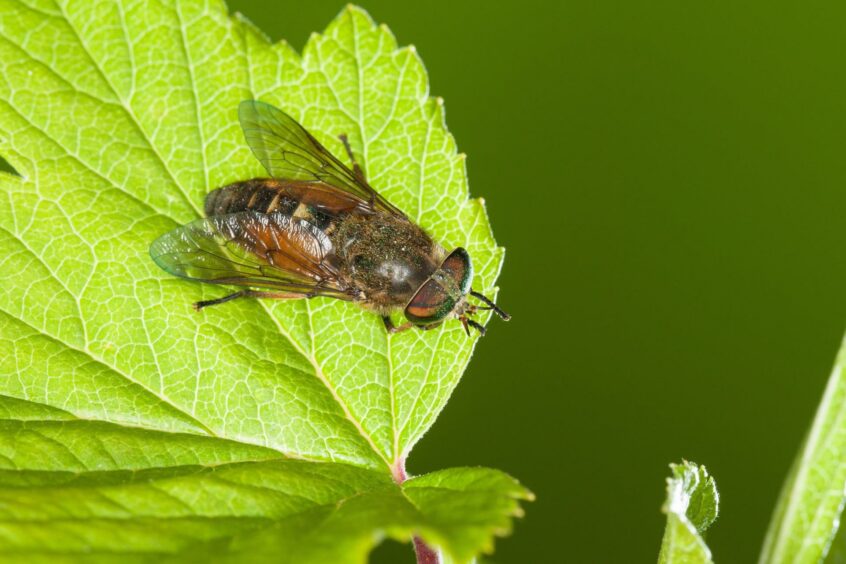
Horsefly bites often cause a blister at the bite site. “But avoid scratching the blister, even if it’s itchy, says Dr Lee. “Clean the area using cotton wool with plain soap and warm water, and pat gently dry.
“It’s not a good idea to use other ‘remedies’ like vinegar or bicarbonate of soda, as these have been shown not to work,” says Lee.
- With any insect bite or sting, if you have a bad reaction or symptoms get worse, seek medical advice.

